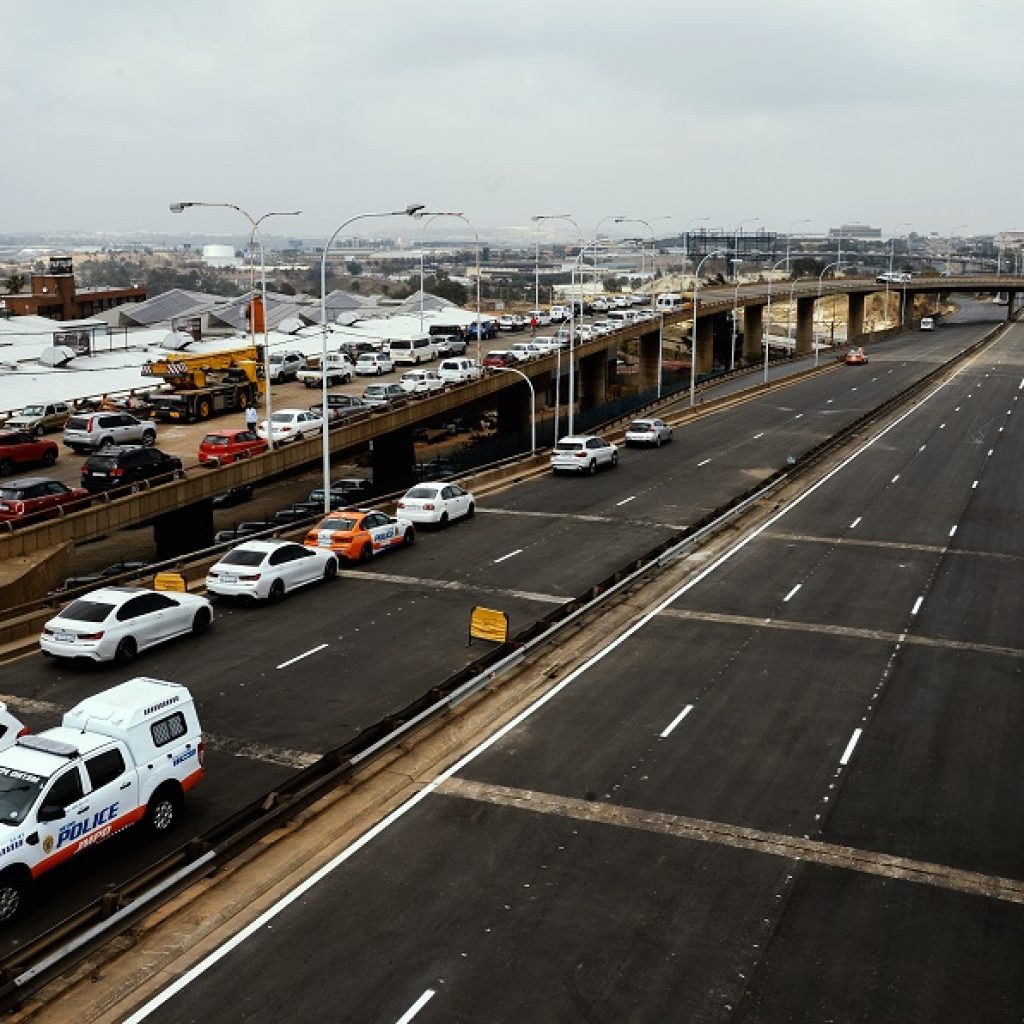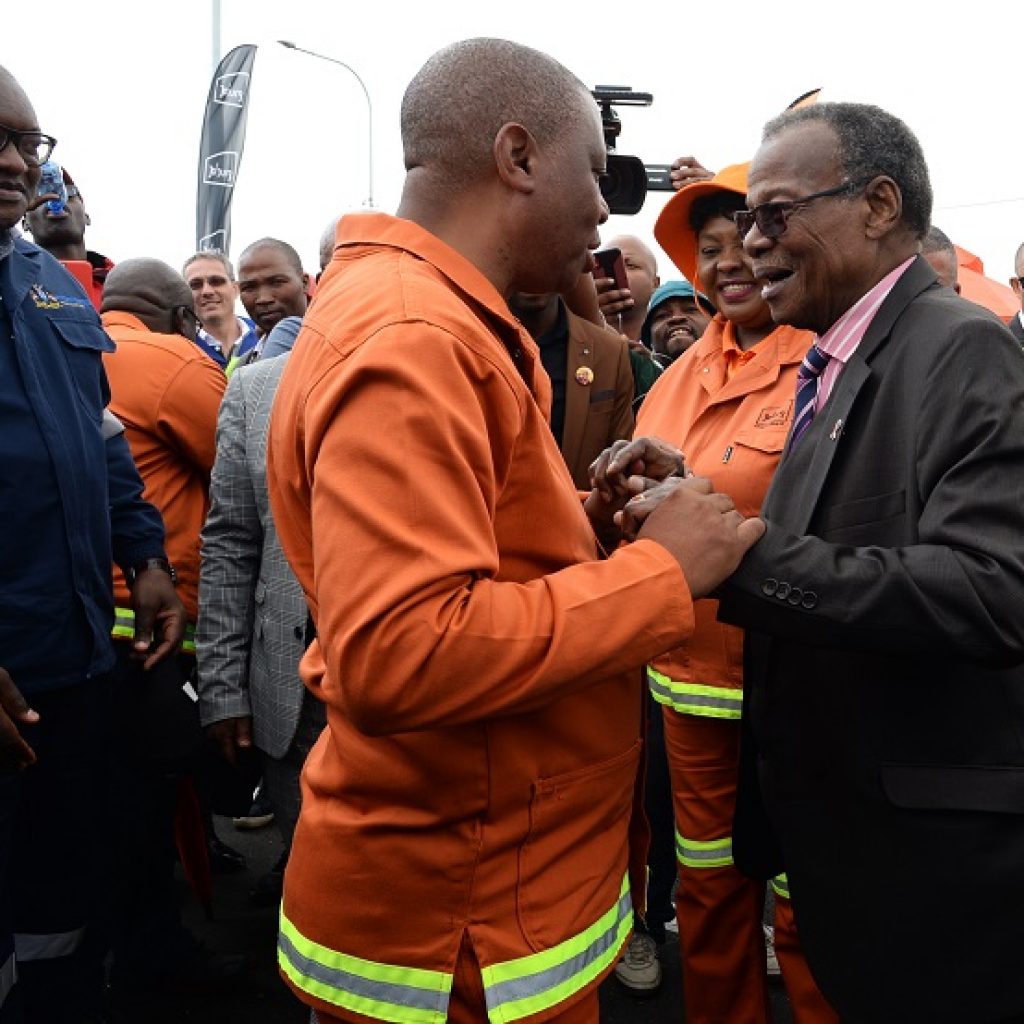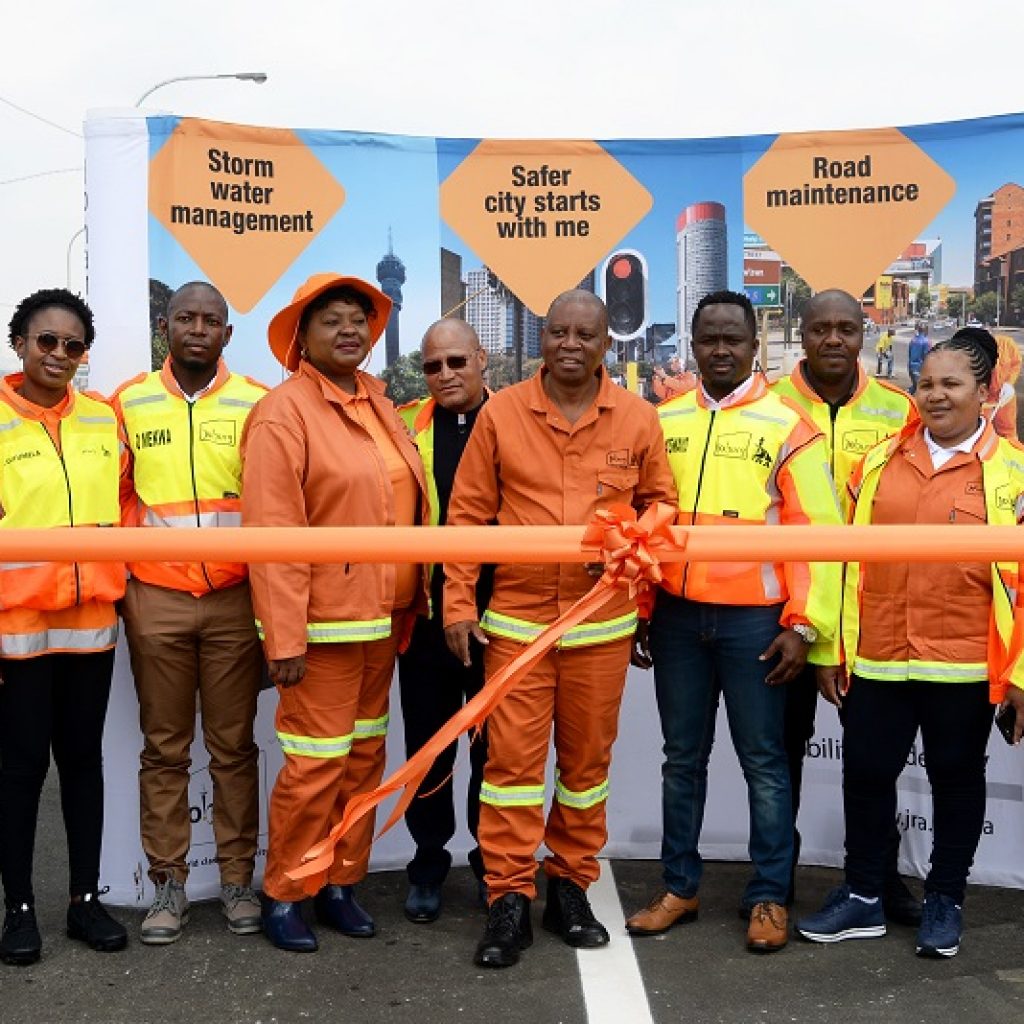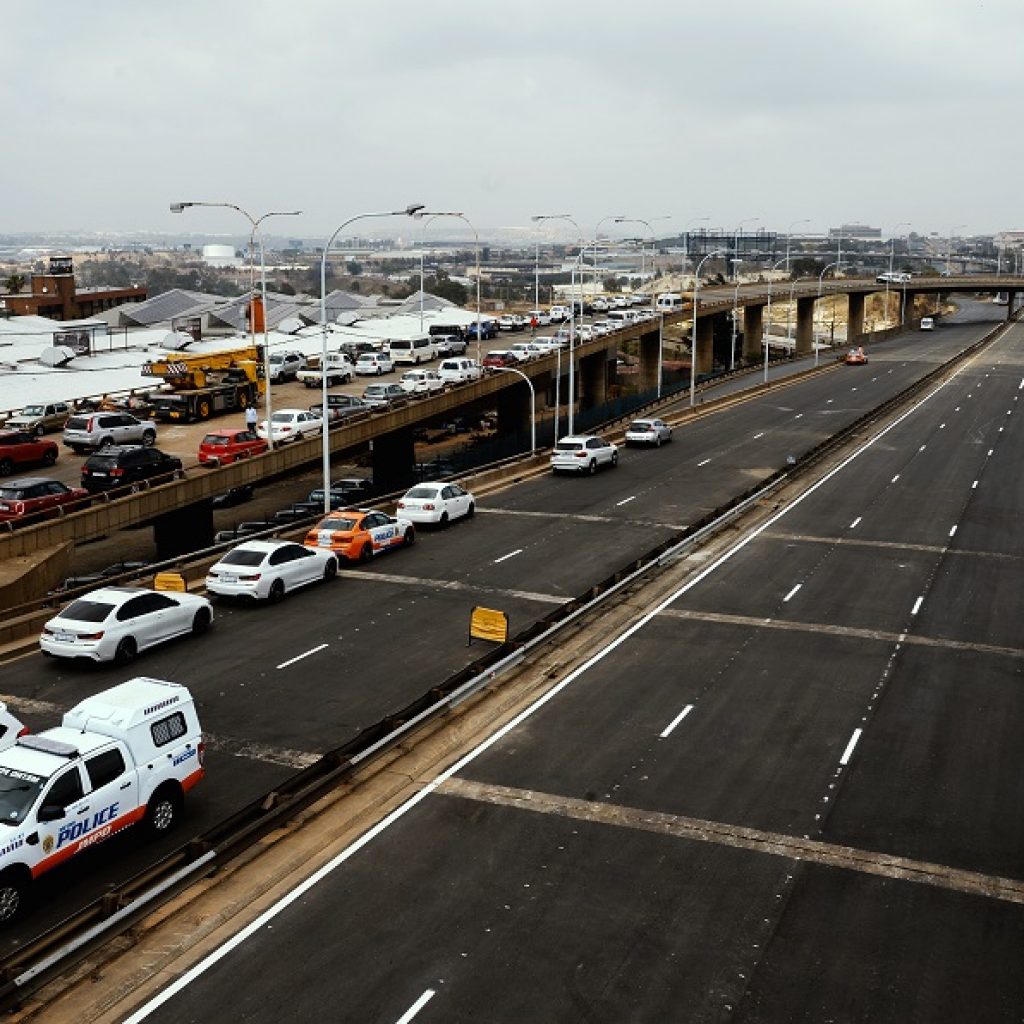
This morning, I had the pleasure of attending the ribbon-cutting ceremony marking the reopening of the
M2 Motorway following its extensive and necessary rehabilitation, which cost an estimated R160 million.
I was also delighted to be joined for this momentous occasion by the Premier of Gauteng, Honourable David
Makhura; Member of Parliament, Honourable Prince Mangosuthu Buthelezi; Speaker of Council of the City

of Johannesburg, Cllr Vasco Da Gama; Member of the Mayoral Committee for Transport, Councillor
Nonhlanhla Makhuba; Committee Chairperson of Section 79, Cllr Tyrell Meyers; and board members of the
Johannesburg Roads Agency (JRA).

The reopening of the M2 Motorway, as scheduled, is one of my proudest moments as the Executive Mayor
of the City of Johannesburg. It is the culmination of many months of sheer hard work by engineers and
construction workers led by the Johannesburg Roads Agency.
Come Monday, 04 November 2019, the M2 Motorway will be fully operational for our motorists.

Back in August 2018, I took the hard decision to close the M2 Motorway following meetings with MMC
Makhuba and the JRA in which I was made aware of the perilous condition of the bridge. The M2 was closed
between Crown Interchange and Maritzburg Streets on 28 February 2019 for rehabilitation. It was a
particularly tricky decision to make when you take into consideration the ramifications of closing a key
motorway linking the East and the West of our city – it meant an incalculable number of motorists would
be diverted and would have to find alternative routes and arrangements. It was a source of frustration for
many.
The M2 Motorway, which was already over 60 years old and had already outlasted the average age of
bridge structures, carries approximately 10, 500 vehicles per hour – in both directions – during peak hours.
Therefore, the closure was necessitated by the continuous monitoring and the bridge visual conditions
assessment which indicated that the structural integrity of the concrete elements was severely reduced.
Parts of the support structure had moved and that affected the structural stability of the bridge. The safety
of the Selby and Karsene bridges couldn’t be guaranteed for continuous use by motorists and thus the
necessary decision for the full closure of the bridge.
The scope of the work at Selby Bridge entailed the demolition and reconstruction of four filed concrete
columns and column heads, installation of new waterproofed bridge joints and water proofing of the
existing bridge deck. The failed columns and column heads was due to the ingress of water into concrete
structures, which led to the formation of cracks. Meanwhile, at Karsene Bridge, the scope included the
demolition and repair of the bridge deck and corbels and the installation of new waterproofed bridge joints.
The failed support system resulted in the bridge deck having worrying movements. There can be no doubt
that it required urgent attention.
There are eight more bridge structures along the M2 which require repair and rehabilitation work, but the
JRA does not envisage these requiring any further closures.
The JRA Acting Managing Director, Siyabonga Nodu said of the project: “This reopening of the M2
Motorway will be a relief to road users as many had to endure heavy traffic volumes daily. The safety of
motorists and all road users still remain our priority, hence the major rehabilitation work on it.”
During this construction project, 57 local community members and 7 SMME contractors were employed.
Once more, I would like to thank MMC Makhuba and the JRA for their tireless work on the M2 Motorway
rehabilitation project, as well as the many other impressive completed and ongoing projects carried out. I
would also like to thank my coalition partners and the EFF for their dedication to the work of delivering the
dignity of change to our more than 5 million residents.
ISSUED BY THE CITY OF JOBURG.

